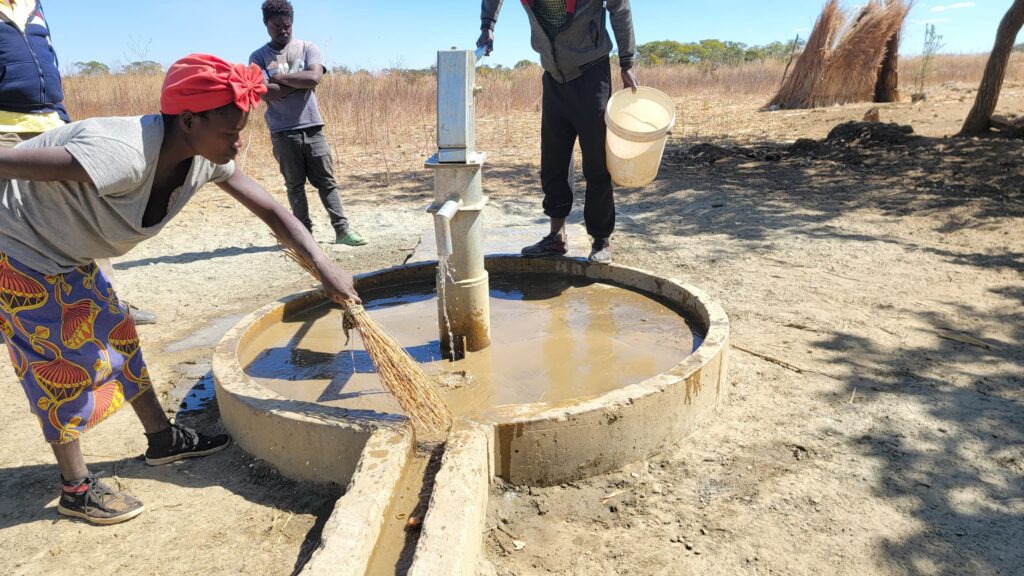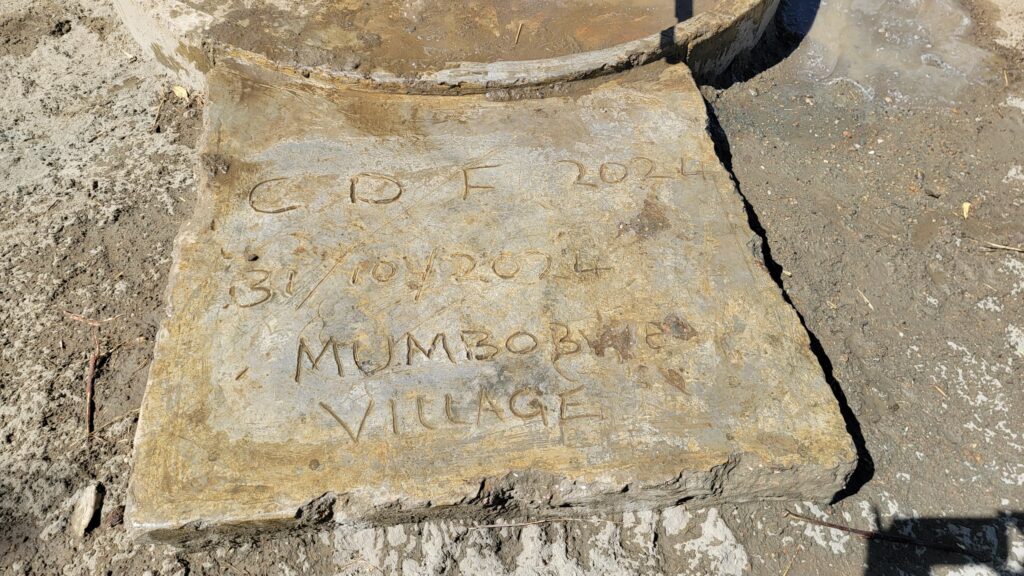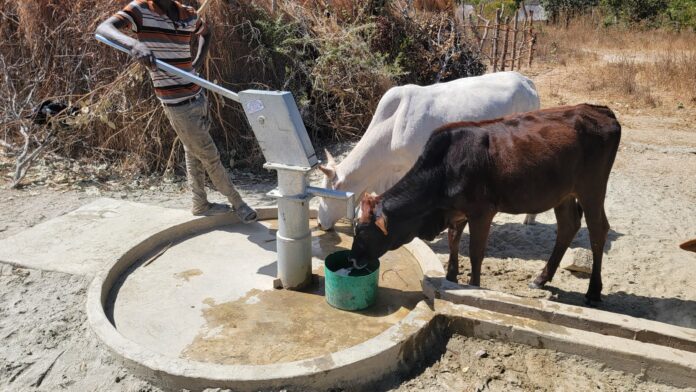By Ennety Munshya,
How public boreholes in Kapiri Mposhi Constituency are being sold to citizens who should access them for free
In the remote village in Kampumba Ward in Zambia’s Kapiri Mposhi Constituency, farmer Goodson Chimena traded away two bulls and a calf — not for land or farm equipment, but for something far more basic: clean water.
“I gave them two bulls and a calf because my family had no water,” Chimena.

Like many in his rural community, Chimena had grown weary of walking long distances to fetch water from muddy streams shared with animals. So when word spread that boreholes were being drilled nearby, hope surged. But there was a catch — the water, though already paid for by the government through the Constituency Development Fund (CDF), came at an additional cost.
In a scheme fueled by deception and desperation, local officials — including a ward councillor and members of the Ward Development Committee — allegedly turned public boreholes into private profits, demanding cash or livestock in exchange for access to infrastructure already meant for everyone.
What unfolded next was a trail of lies, illegal sales, and broken trust, exposing a system where those tasked with delivering development instead sold it off — one borehole at a time.
Victims paid in cash or livestock
Community members were misled into paying up to K25,000 in cash or livestock, some as many as three cows, to own the boreholes.
Victims visited by MakanDay including Elisha Mulangana, Goodson Chimena, and Grace Kangala, in Kampumba Ward in Kapiri Mposhi Constituency, only later discovered that the boreholes were publicly funded.
Mulangana told MakanDay that he paid K22,000 in cash, a negotiated amount down from the initial K25,000, to have a water point installed in his yard.
He explained that Collet Londe, a member of the WDC, contacted him to say water points were available for a fee. Londe initially quoted K25,000, but they settled on K22,000 after negotiations, as the payment was to be made collectively with others.
“I was told these boreholes were not from CDF, that they had just sourced them from somewhere else,” said Mulangana.

He added that four days later after the phone conversation, the councilor also called and told him to prepare for the drilling but warned him “not to tell anyone”.
On October 30, 2024, the councillor and a WDC member, identified as Best Choongo, visited Mulangana’s home to inspect and select the drilling site.
He explained that upon discovering the installation was part of a publicly funded CDF project, he requested a refund. He was told they could only return K5,000, which he refused, insisting on a full reimbursement.
“I’m not happy. This was not a straightforward transaction. Corruption like this prevents real development,” he said. “They should return my money.”
In another case, livestock was used as payment. Goodson Chimena told MakanDay he gave the councillor two bulls and one smaller cow, estimating their total value at K33,000, in exchange for a water point.
After initially saying he had no money, the councillor allegedly accepted the animals as payment following negotiations.
“When I gave him one bull, he refused and said that wasn’t enough. I added a second, and then a smaller cow for the drilling team,” Chimena said.
He later realised the water point was part of the CDF-funded public project when the District Commissioner (DC) visited to inspect it.
Chimena was summoned to a meeting with the DC, traditional leaders, and other affected residents, but the councillor denied the allegations, and no resolution was reached.
Similarly, Grace Kangala, an elderly woman, said she gave up two bulls to the councillor for a borehole after struggling to access clean water for her family. They had been walking long distances to draw water, often from unsafe sources shared with livestock.
“Now that I know the boreholes were meant for the entire community, I want my animals back,” she said.
According to data accessed by MakanDay from the Kapiri Mposhi Town Council website, 38 community projects were initially approved under the 2024 CDF, at a cost of K16,360,000. However, the 2024 Community Projects Progress Report later listed 39 projects with a revised total cost of K17,277,200.
Among the listed projects was a contract awarded to Intel Engineering Limited for the drilling of 12 boreholes in Kampumba Ward, covering ten villages. The contract, worth K764,653, included borehole drilling, pump testing, hand pump installation, and associated civil works. As of 6th April 2025, the project was marked as complete.
Despite this, allegations have emerged that some of the boreholes—fully funded by the CDF—were sold to individuals for personal use.
When contacted on August 8 2025, Councillor Bruce Kalinda denied any wrongdoing, saying all boreholes were drilled based on WDC plans.
He maintained that his role was limited to confirming the need for water points in specific communities. However, during follow-up calls, Kalinda referred the matter to Kapiri Mposhi MP Stanley Kakubo, who was with him at the time of the call.
MP Kakubo acknowledged the councillor’s affiliation with the ruling UPND and advised that any questions be formally submitted to the local authority for an official response.
WDC member Londe, who is also implicated, has had his phone switched off.
CDF Chairperson Mute Kabamba confirmed awareness of the reports but said action could not be taken until a full investigation was conducted.
Meanwhile, District Commissioner Francis Hasalama confirmed that the district administration is looking into the matter but said they were not in a position to issue a formal statement pending the outcome of ongoing investigations.
The Jesuit Centre for Theological Reflection (JCTR), a Catholic faith-based organisation, says access to information remains one of the biggest challenges for civil society groups monitoring the implementation and use of CDF resources.
JCTR Programmes Officer John Sauti, whose organisation has monitored several CDF projects, cited persistent issues such as project delays, conflicts of interest—undermining the quality of works—and the politicisation of projects.
Fellow Programmes Officer Martin Sikonda added that, in many cases, councilors and Members of Parliament dominate the project selection process, restricting genuine community participation and sidelining local priorities.
“Conflict of interest in some areas we have monitored has negatively affected the quality and standards of work delivered,” Sauti said. “Those sitting on committees are also among the bidders. They fail to declare interest, and with no one to supervise or provide checks and balances — since they are part of the authorities — accountability is lost.”

Discover more from MAKANDAY
Subscribe to get the latest posts sent to your email.



